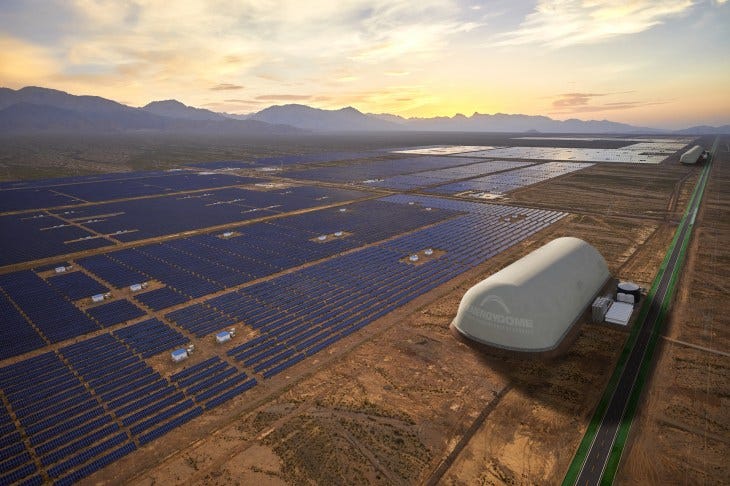The Long Duration Storage Technologies That Could Help Decarbonize the Power Grid
In recent years multiple technologies have made significant progress in solving one of clean energy's biggest problems
Electricity is a tricky thing to stockpile.
Unlike coal, canned food, or gold bars, you can’t just stick a whole bunch of electricity somewhere and come back for it later. It has to be stored in some other form. Thus, the grid is set up so that electricity flows continuously from generator to consumer, (almost) always at the precise voltage that will keep the lights on.
We’re approaching a point in the energy transition, however, where storing electricity is becoming crucial. As wind and solar farms continue to replace fossil fuel power plants, grid operators will need more effective ways to hang onto the surplus electricity that renewables generate instead of letting it go to waste. Fully decarbonizing the grid will require technologies that are capable of storing electricity for later use over many days, and in some cases, entire seasons.
This is the problem that long-duration energy storage—which generally refers to storage technologies that can discharge electricity for at least 10 consecutive hours at maximum capacity—aims to solve.
In recent years, multiple long-duration storage technologies have made significant progress. Private investors and governments have poured billions into research and pilot projects. Meanwhile states, like California, have passed policies mandating utilities procure long-duration storage capacity.
In this story, we’ll cover:
Why we need long-duration storage in the first place
The limitations of lithium-ion batteries for grid storage
The new storage technologies that will be deployed over the next few years
Which projects the federal government recently poured hundreds of millions into
Why today’s electricity markets don’t value long-duration storage
What policymakers can do to spur innovation in long-duration storage





